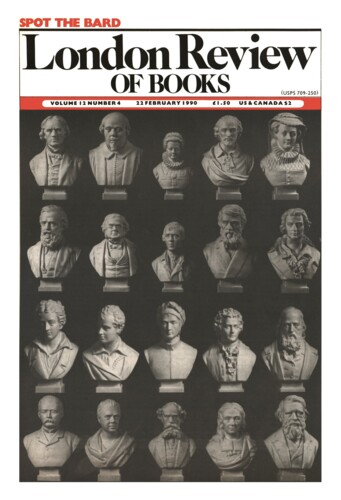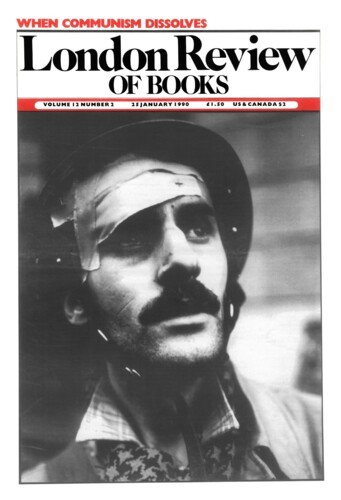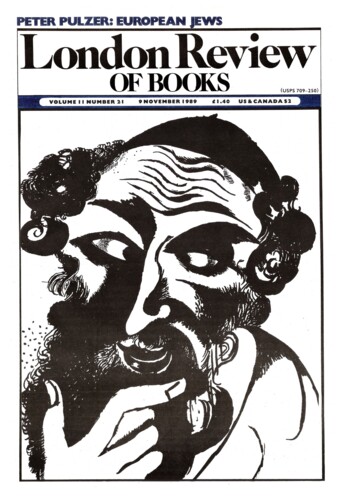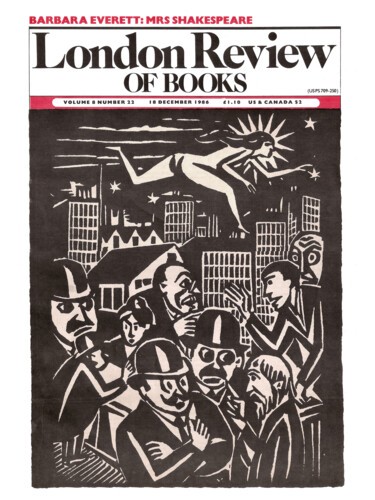Trounced
C.H. Sisson, 22 February 1990
C.S. Lewis was born in 1898, the son of a Belfast solicitor. He was educated first at home, then in England at a preparatory school, at Malvern (for one term only), and by a private tutor. So to Oxford. It was 1917. Lewis had volunteered, and he was in effect an officer cadet, soon in ‘barracks’ at Keble. He returned to Oxford after a brief spell on the Western front, where he was wounded, and at Oxford he stayed until 1954 when he was appointed to a chair in Cambridge. He seems hardly to have set foot on the European mainland, after his wartime excursion, and indeed to have seen remarkably little of England. He died in 1963.




